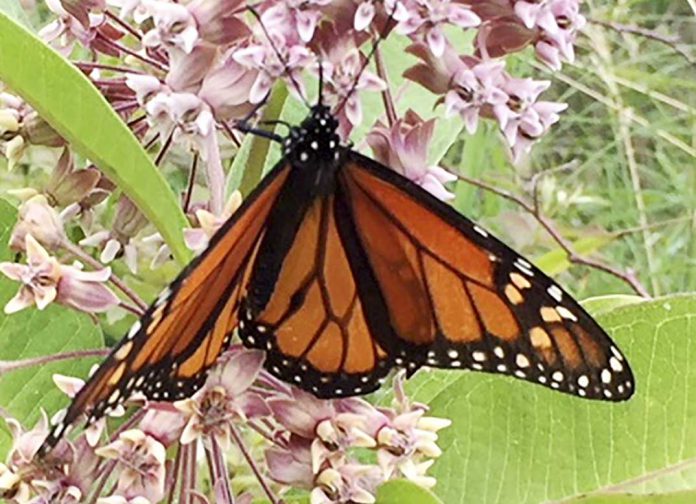SUNSHINE ALLEY – Dozens of young people from the Manitoulin area took part in one of two UCCM Anishnaabe Police Service-led youth camps held in Whitefish River First Nation this summer, a first-of-its-kind program that aims to build relationships between young people and community safety workers.
“This camp was about building relationships between youth and police. I know I’ve built some good relationships here and made some memories that I’ll never forget,” said UCCM Constable Murray Still at the closing ceremony of the week-long camp, held at the Whitefish River First Nation powwow grounds in Sunshine Alley.
This was a full-time initiative put on by UCCM Police and numerous community partners including the Wikwemikong Tribal Police Service, M’Chigeeng Health Centre, M’Chigeeng Youth Centre, Mnidoo Mnising Crisis Response Team, Ontario Provincial Police and Noojmowin Teg Health Centre. Youth participants stayed on site and enjoyed typical summer camp activities such as hikes, painting, obstacle courses and canoe paddling instruction, but the camp went far beyond these.
All the youth learned basic first aid and CPR and received certificates from St. John’s Ambulance branch commissioner Brian Patterson. They received training on how to use naloxone kits in case someone around them experiences an opioid overdose and got their own naloxone and first aid kits to keep. There were also workshops about healthy relationships and other pieces of life advice.
Being an Anishinaabe-led activity, there was a considerable amount of traditional knowledge sharing and ceremony as well. Elder Josh Eshkawkogan was present for the camp to help lead ceremonies and provide guidance.
Mr. Eshkawkogan described one camper, Ashton Fogal, who had been rather reserved earlier in the camp. However, he coaxed Ashton to try his hand at drumming and singing at a boys’ activity and his performance left the group speechless. Even those in the girls’ group who were at a separate event could hear the song from quite a distance away and could not believe that it was Ashton. He was invited to perform an honour song at the closing ceremony based on his new-found talent.
“I had a lot of fun. It was peaceful; I made a lot of great relationships,” Ashton told The Expositor after the closing ceremony. He heard about the opportunity through M’Chigeeng Health Services’ Sarah Seabrook, who was also present for the camp. His advice for anyone interested in taking part in the camp next year was to be open-minded and take all the opportunities as they present themselves.
This camp came as a result of a successful application to a proceeds of crime grant—money from the province that came from crime that has since been seized following criminal prosecutions which is re-directed to community initiatives such as this with the aim of improving relations between police and the public, especially youth and those of marginalized communities.
“It’s the key to a successful future. In First Nations especially, we’re faced with so many systemic issues such as addictions and mistrust of police, which stem from colonization and the role police have played in that,” said UCCM Police Chief Rodney Nahwegahbow. “(The closing ceremony) was a very proud moment for me to celebrate these youth who achieved a lot.”
There were a lot of sharing circles for youth to build trust and open up to their peers as well as community partners such as police officers. Police Chief Nahwegahbow said this was especially important in the social media era when people tend to be more insular.
At the closing ceremony, each participant received a certificate of completion and Constables Still and Carrie Spry shared a brief personal description of what traits they discovered in each person and how they brought their talents to the group. They also offered the opportunity for students to share their thoughts on their experience.
This was the second and final week-long camp of the summer, and participant Aysia Francis Debassige had also attended the prior session. She shared her thoughts at the closing ceremony, thanking Constables Still and Spry for all their hard work and for their guidance when needed.
“I’m so happy I met all of you. I’ve made great friends. I hope you all come back next year because I want to be here and I want to see all of you next year,” said Aysia.
The camp instilled the importance of trying new things and taking on challenges; with the point being that even if they did not turn out as expected it was still better to try than not.
All of the camp facilitators expressed their gratitude to the youth for taking part, learning more about themselves and getting the skills they needed to make a difference in their communities.
“We would like to see that trust built in authority figures, and they will maybe even pursue an interest in law enforcement so they can carry forward that message to young people in their careers,” said Police Chief Nahwegahbow.
The organizers said they hoped to run this very popular event once again next summer.





